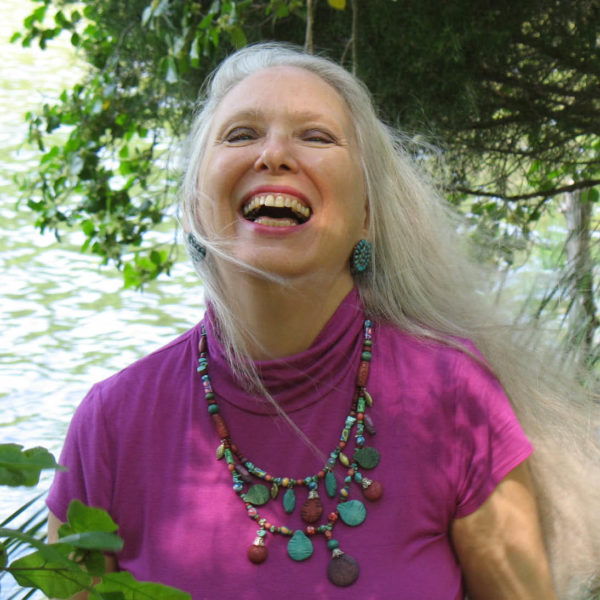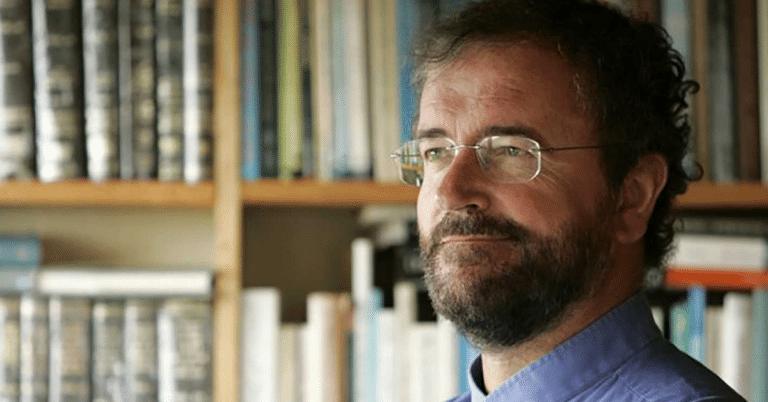
Image by Taylor F11.
A Passion for Place
The cultural historian Thomas Berry said:
“The universe is a communion of subjects not a collection of objects.”
And he urged us to look to the Earth as our primary source of divine revelation.
Berry’s words became real for me when I moved back to my Chesapeake Bay homeland after an absence of some 40 years, most of which had been spent searching for God in all the ways they tell us God can be found: in scripture, in liturgy, in prayer, and in various forms of religious community, including several stints in monasteries.
But it wasn’t until I returned to the landscape of my childhood that I truly fell in love with God through, with, and in the place I now call beloved. Nor am I content to confine this passion to merely human experience. No. I need to see God in and through every eye. For instance, how do oysters experience their yearning for the divine? How would the reciprocity of this relationship express itself for them?

“The Reef” embodies a desire for that ineffable “something more,” which is shared by all inhabitants of the universe. If we humans know nothing else, we know there is much we need to let go of in order to be open and available to divine presence.
The Reef
We call to them but they do not hear us, adrift forever
in the somnolent tides of that lofty black river.Some among us believe
they are free-swimming larvae, and tell their children, “This
year, to this reef, the travelers will come home.” Others thinkthey are pearls, and mourn the fate of those
who toiled ceaselessly yet passed without witnessing
the glory wrought from their pain. Still others holdwe were created in their image; are meant
to join them when we die, meant to shine.I share
the opinion of the few: we abide here
and there simultaneously, as firmly fixed to that reef
as to this; andthe voice with which we call to them is
their voice, timelessly given, perpetually shared; andif they seem not to hear, it’s because
gazing at us they seenot oysters, only stars.
We read in scripture that the grain of wheat must die to produce fruit. How, I wondered, might a tree experience the diminishments of the aging process, how would it move through its suffering to know the numinous “something more” we all hope for? I found my answer on the beach one day.

The Stump
I remember you. You stopped, admiring
what they have done to me, these waves, with their unrelenting
ebb and flow. Me,my roots so deep, I thought myself
secure, but impossible to defend against the encroaching river, its
abrasive upsurge, its scouringdownrush. Me. Bereft
of bark, sap, limbs, leaves, all a tree should do and be; me,
worthless, disintegratingto splinters but you
oohed and aahed over my remnant form, bent down, stroked
the rough swirls, thecorrugated eddies where
pith and core had been. “You look just like a wave,” you sighed, and
I felt it, a surge within.You walked on; I remain
with the waves, their mantra of perpetual longing mine now, mine
their endless flow.
These two poems are from a work-in-progress called Azimuth of God: Poems of Absence & Presence. I fell in love with the word “azimuth” while reading Michael Ondaatje’s The English Patient. From context I knew it had something to do with navigation, and when I looked it up, I discovered the word means “the direction of a celestial object from the observer, expressed as the angular distance from the horizon to the point at which a vertical circle passing through the object intersects the horizon.”
Instead of saying, “Azimuth of Venus at 45 degrees,” perhaps we could learn to say, “Azimuth of God at the oyster reef,” or “Azimuth of God at the oak tree” as well as “Azimuth of God at John and Jean.” For if there’s anything a passion for place has taught me, it’s that spirit intersects matter everywhere.


